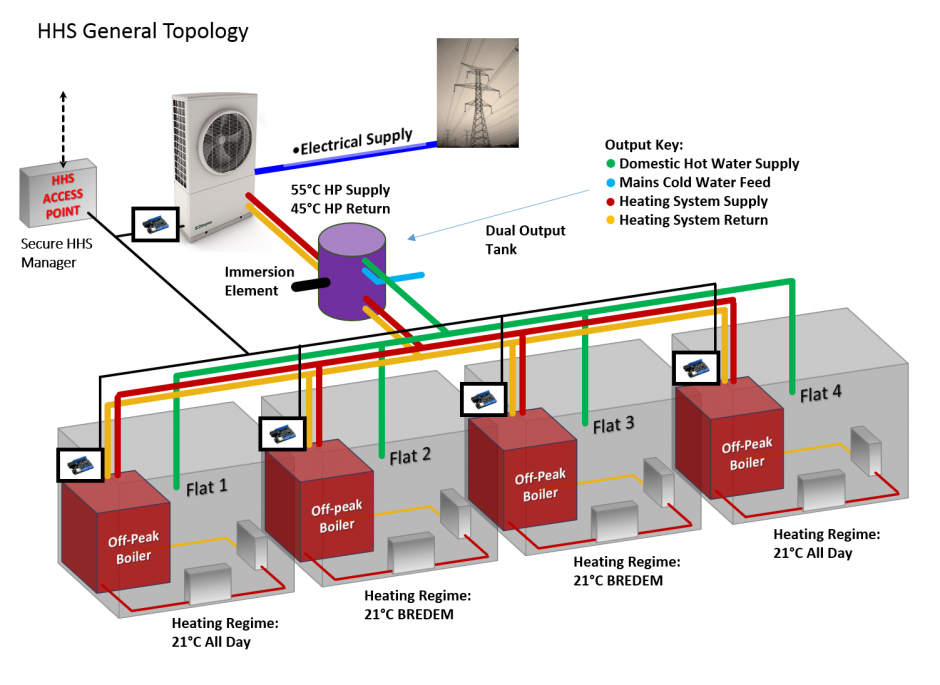
Developed through an Innovate UK funded project that involved EDF Energy, BRE, Glen Dimplex, and Eastbourne Homes the so-called ‘Renewable Integrated and Sustainable Electric’ (RISE) system uses two energy sources for domestic heating.
One of these sources is an ‘off-peak’ thermal storage boiler, based on Glen Dimplex’s Quantum Storage heater technology, that uses cheaper night time electricity to heat the bricks inside it. The hot water pipes in the house are passed through the off-peak boiler to warm the water for the house radiators providing heat during peak heating hours from 7am to 9am and 4pm to 8pm.
During off-peak hours, the off-peak boiler charges itself and the heating is provided by the second heat source – the Air Source Heat Pump. The heat pump operates like a fridge in reverse. (A fridge extracts heat from inside the fridge to inside the kitchen.) Similarly, the heat pump extracts heat from outside air and uses it to heat the water stored in the hot water storage tank. When the next peak heating time arrives, the hot water from the storage tank is circulated to the radiators and topped up with heat from the off-peak boiler. Hence this configuration avoids placing heat demand on the National Grid during peak times and thus reduces the need for network reinforcement.
Professor John Counsell, Head of Chester's Department of Electronic and Electrical Engineering, said that the technology, which has been tested for a year in the Watford BRE Innovation Park, could help meet ambitions laid out in the government’s Clean Growth Strategy to decarbonise domestic heating by 2050.
“Everyone talks about decarbonising electricity, but no-one talks about how to decarbonise heat realistically, which is what ‘RISE’ is," he said. "At the moment, gas is the major fuel being used to generate electricity in power stations (as well as being used directly in people’s homes). Electrical energy efficiency of appliances and lighting since 2006 has contributed to the removal of national grid coal fired power stations. It has also reduced the free heat gains into the home and, consequently, we will see a rise in domestic heating gas demand that has the potential to result in low gas supplies and increasing electricity prices.
“I believe that a long term affordable and secure heating supply to homes is essential to offset the increasing threat of fuel poverty in the UK. A novel heating solution is needed. The RISE project was developed and funded to take this challenge and deliver affordable electric heating.”
Counsell’s colleague Dr Yousaf Khalid added that the system could be could be configured so that heat pump is shared across several dwellings whilst a off-peak boiler in each dwelling supports heating during peak hours. “So far, the results show that the RISE system can outperform a heat pump only heating system in terms of carbon emissions, whilst being competitive in running costs with a conventional gas boiler heating system,” he added.
The group is now working on the development of second generation prototypes which it hopes to trial throughout the UK in the near future.
A paper on the research is published in the International Journal of Energy and Power Engineering.





Poll: Should the UK’s railways be renationalised?
I think that a network inclusive of the vehicles on it would make sense. However it remains to be seen if there is any plan for it to be for the...